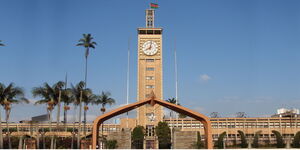The Public Seal of Kenya has been making headlines lately after reports that it had been transferred from the office of the Attorney General to that of the Head of Public Service.
The transfer is said to have happened following the enactment of the National Assembly Administration Laws (Amendment) Bill, 2023, which proposed to amend the Office of the Attorney General Act, 2012, to strip the AG of the power to be the custodian of the Public Seal.
According to the Bill, the President shall appoint a Head of Public Service who shall be the Chief of Staff in the Office of the President and the custodian of the Public Seal, as well as any other instruments of State.
The Chief of Staff shall further perform such other functions as may be assigned by the President using the public seal.
So, what is the Public Seal, and why does it matter? Well, the Public Seal of Kenya is not your ordinary signature seal. It is the official national signature, used to authenticate agreements and decisions made by the government on behalf of the people.
The Public Seal is set out in the Second Schedule of the Constitution and is one of the national symbols. It is also found in Part Nine of Chapter Two of the Constitution on national symbols and national days. Other national symbols are the national flag, the national anthem, and the coat of arms.
The Seal consists of the Coat of Arms of Kenya set on a grayscale background featuring two lions, a symbol of protection while holding spears, and a traditional East African shield.
The Public Seal acts as the formal approval mechanism for governance, financial transactions, diplomatic agreements, and critical national deals.
This means that this machine holds so much power in Kenya than one can imagine. Among the powers it possesses are securing loans for Kenya, signing trade agreements on behalf of Kenya, and leasing national assets.
It also authorises transactions that shape Kenya’s economy and sovereignty. These functions, if properly executed, ensure national development. However, they also carry grave risks if misused.
Its transfer has elicited debate among Kenyans over the motive of those behind the said transfer, this coming even as Government Spokesperson Isaac Mwaura, on the other hand, insisted that the Public Seal is still at the AG's office.
Former AG Justin Muturi had previously alleged that the transfers was done because the government wanted to avoid checks and legal censure, incliding by the AG.
"If documents can be signed and bear the public seal without the AG's legal advice, that is a serious issue. I'm sure that they are avoiding accountability by transferring such matters to the HOPS office,"Muturi told The Standard when he was AG.

Kenya Kwanza MP Dies, Speaker Wetang'ula Confirms Breaking News











